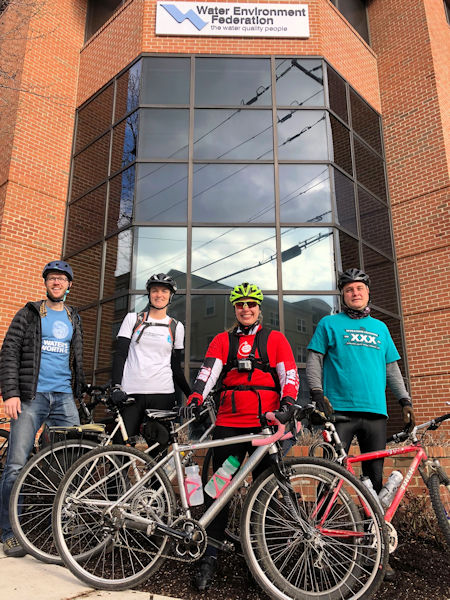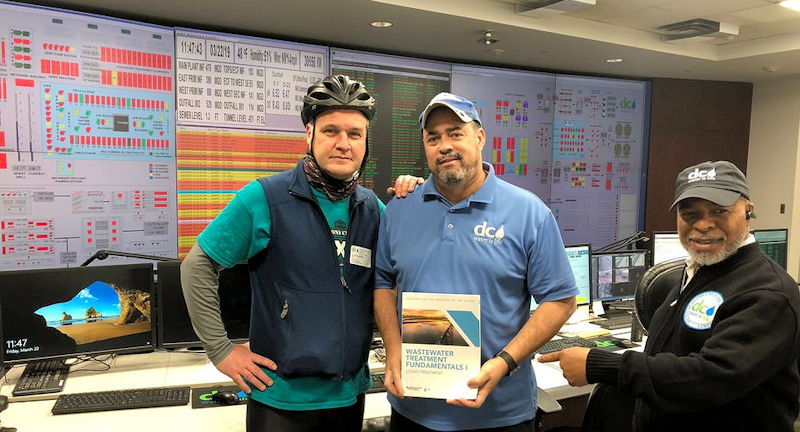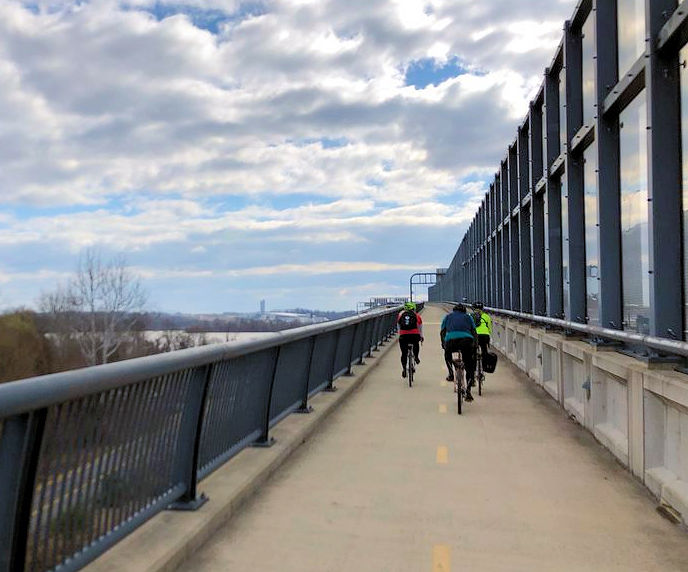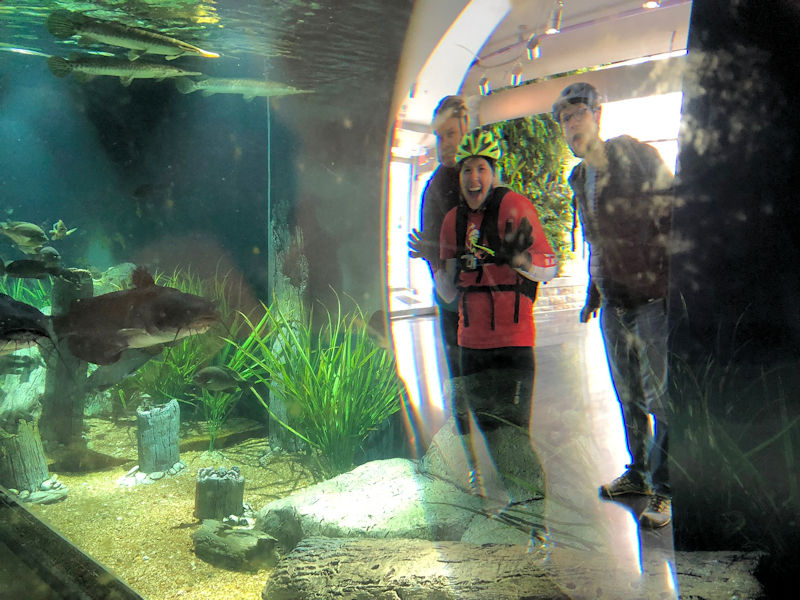
Water Environment Federation (WEF; Alexandria, Va.) staff members, from left, Brad Lovett, Jessica Rozek, Megan Livak, and Steve Harrison spent World Water Day delivering resources to local operators. WEF photo/Jessica Rozek.
On March 22, four Water Environment Federation (WEF; Alexandria, Va.) staff members strapped on their helmets and pedaled their way around the Washington, D.C. metropolitan area to celebrate water resource recovery facility (WRRF) operators.
Jessica Rozek, Steve Harrison, Megan Livak, and Brad Lovett celebrated World Water Day by biking to three local WRRFs. The group loaded their bikes up with WEF and WEFTEC items including WATER’S WORTH IT shirts and the book, Wastewater Treatment Fundamentals I – Liquid Treatment. They gifted these items to operators at Alexandria (Va.) Renew Enterprises, DC Water, and the Arlington (Va.) Water Pollution Control Plant as a token of WEF’s gratitude for the important work they perform.

Harrison (third from left) and Lovett (right) stand with operations and laboratory staff at the Arlington (Va.) Water Pollution Control Plant. WEF photo/Rozek.
“Water resource recovery facilities are essential in our communities. Most people don’t think about what happens when they flush the toilet because their facilities do such a good job taking care of it,” Rozek said.
“Our operators don’t get nearly enough credit for the crucial services they provide. They typically work in anonymity and isolation, doing the most important job in the world,” Harrison said. “The absence of these services would have grave consequences for commerce, the environment, and public health. I wish we could convey our appreciation for them every day.”

Harrison presents the WEF book, Wastewater Treatment Fundamentals I – Liquid Treatment, to operators at DC Water (Washington, D.C.) WEF photo/Rozek.
The United Nations announced that “leaving no one behind” would be the theme of this year’s World Water Day. This inspired WEF staff to recognize wastewater treatment operators, who often find it difficult to leave their facilities to attend WEF events. The day consisted of a 3-hour bike ride, a lunch meeting to discuss a reuse-beer collaboration at a local brewery, and stops at the three WRRFs.

WEF staff rode their bikes 43 km (27 mi) to three water resource recovery facilities in the Washington, D.C. area to show appreciation for operators. WEF photo/Rozek.
“We rode [43 km] 27 miles on our bikes to our local treatment plants and thanked our operators, our unsung water heroes, for all that they do,” Livak said. “It was such a rewarding day.”
The ride occurred a day after a heavy rainstorm. Some of the operators showed up on their day off to help manage the flow after the storm, Rozek said.
“The operators were busy … but, they were also genuinely appreciative,” Lovett said. “Their work is totally essential, but they don’t get told that often enough. So, it felt good to be a part of that support.”

WEF staff examine the effluent fish tanks in the lobby of Alexandria Renew headquarters in Virginia. WEF photo/Rozek.
Harrison’s favorite part of the experience was the “enthusiastic welcome” they received from the WRRF employees. “The staff seemed genuinely moved that we understood the magnitude and complexity of the effort required to provide clean water and sanitation services,” he said.
Rozek explained that the choice to bike to the facilities helps demonstrate how others can use a ride to their local WRRFs as a way to learn more about wastewater treatment. She encourages others to map out routes to visit local WRRFs, see the local “wastewater sights,” and share your stories with her at jrozek@wef.org.
Read more about the experience from Rozek’s perspective in the WEF WaterBlog.
— Jennifer Fulcher, WEF Highlights








April 17, 2019
Featured, Multimedia